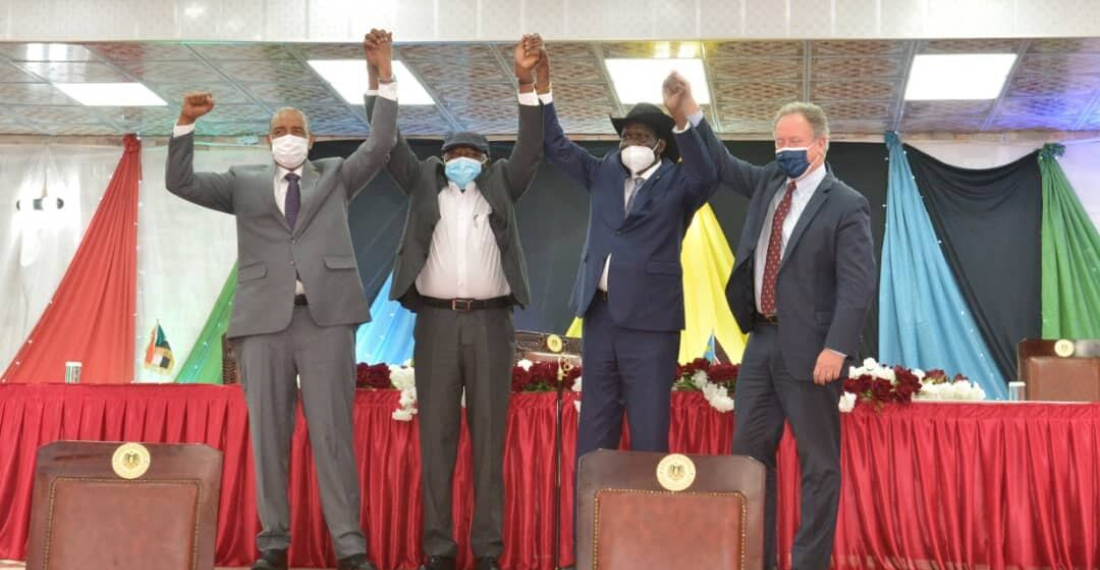Sudan’s ruling Sovereign Council and the rebel Sudan Liberation Movement-North Sector (SPLM-N) on Sunday (28 March) signed a declaration of principles envisaging the establishment of a secular state. The document calls for the respect of diversity, for forming a unified army, for the redistribution of wealth and power, and for the adoption of a federal system.
The declaration was signed in Juba, the capital of South Sudan, by Abdel-Fattah al-Burhan, chairman of the Sovereign Council, and SPLM-N leader, Abdul Aziz al-Hilu in the presence of South Sudan president, Salva Kiir, and a number of UN officials and international ambassadors.
According to the Anadolu Agency the declaration outlines: "The establishment of a civilian, democratic and federal state in Sudan that guarantees freedom of religion, religious practices, and worship for all the people… The state shall not impose religious beliefs on anyone and shall stay impartial on religious affairs and matters of belief and conscience. The state also guarantees and protects freedom of religion and religious practices, provided that these principles are guaranteed in the constitution."
Sudan was ruled under a strict interpretation of Islam during the tenure of ousted dictator Omar al-Bashir. The country has a significant Christian minority, with smaller numbers adhering to indigenous animist religions.
Responses to the declaration varied, with the Sudanese Union of Religious scholars immediately rejecting the document stating that it contradicts the will of the majority of the Sudanese people. Moreover, several oppositions groups criticised the declaration saying that it overlooked the current constitutional arrangements.
Prime Minister Abdalla Hamdok welcomed the declaration and the UN integrated mission (UNITAMS) said the declaration is a step towards wider peace.
Sudan's transitional government, which consists of civilians and soldiers, has made creating peace with the country's rebel groups a top priority. The declaration is expected to help resume peace talks.






